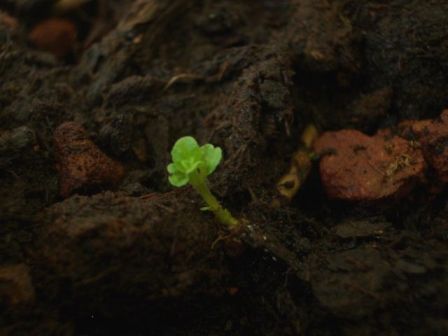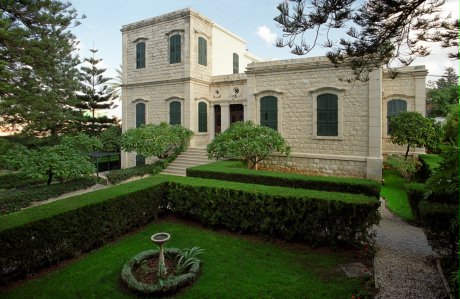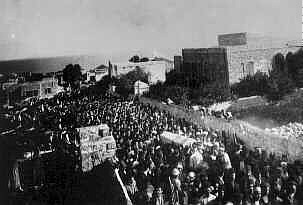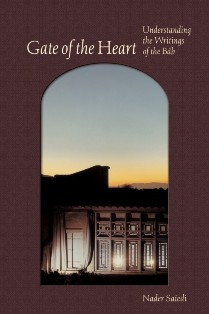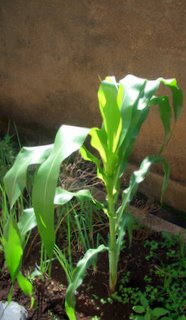 I grew up in Cameroon, in a number of rural towns. One feature of living in the tropics is that things grow very easily, all year round, and everywhere you look there is greenery as far as the eye can see. In our back yard we had a vegetable garden, and as kids my sister and I loved to play and work in the soil of the garden. We would help my parents till the soil, plant the seeds equally spaced apart in rows, and water them on occasion. We would watch the plants grow day by day, especially for the few weeks after planting, and observe carefully the budding plant breaking the soil, growing with just two leaves to start with, growing to a few centimeters and needing to be propped up with a stick, then being able to stand on its own. And after a few months we would love to harvest the tomatoes, peas, potatoes and best of all the corn. I loved harvesting corn!
I grew up in Cameroon, in a number of rural towns. One feature of living in the tropics is that things grow very easily, all year round, and everywhere you look there is greenery as far as the eye can see. In our back yard we had a vegetable garden, and as kids my sister and I loved to play and work in the soil of the garden. We would help my parents till the soil, plant the seeds equally spaced apart in rows, and water them on occasion. We would watch the plants grow day by day, especially for the few weeks after planting, and observe carefully the budding plant breaking the soil, growing with just two leaves to start with, growing to a few centimeters and needing to be propped up with a stick, then being able to stand on its own. And after a few months we would love to harvest the tomatoes, peas, potatoes and best of all the corn. I loved harvesting corn!
So a few weeks ago I was walking in the gardens here, noticing the freshly tilled soil and reminiscing of my childhood days and growing plants. We had tried to grow plants in Australia as well but never seemed to get a proper garden in place before we had to move house. And here, the apartments we live in doesn’t quite lend itself to an outdoor garden. But I still dreamt of being able to cultivate a plant once again, somehow…
A few days ago, my wife and I went out to a local fruit and vegetable market. My wife had decided that she wanted to avoid sugary foods for a while and to try to eat more vegetables. So we headed down to the Talpiyot market in the Hadar, which I hadn’t been to before. It is an open air market spanning a few streets, with stalls on the street walks and corners. It was getting dark by this time however, and after around half an hour they started packing up. But we got a few veggies and even found some nice black olives.
On the way back, as we were walking through the Hadar, we passed by a shop that sold potted flowers. As we stood admiring the flowers, I commented that it would be great to have a plant at home, and Melissa agreed, but suggested that it would be better to have something we could eat. We were just about to leave as there didn’t seem to be any herbs, when suddenly we spotted what looked like a mint plant hiding between the flowers. We contemplated the idea, that maybe we could find a place for it in our flat, and realized we should be able to in our laundry area which is well lit. So we asked the price and finding it quite reasonable, decided to buy the plant. We also bought a larger pot and extra soil for it, so the plant could spread and provide enough mint for us to have on a regular basis.
As we rode the bus home, we were very excited at this new acquisition and couldn’t wait to get home to find a place for it. We just had to give this new comer to our home a name, and decided to call it Minty. We then took some photos of the whole process, and wish to share these with you.
Here’s Minty in its old home, waiting to be transferred to a bigger premises:
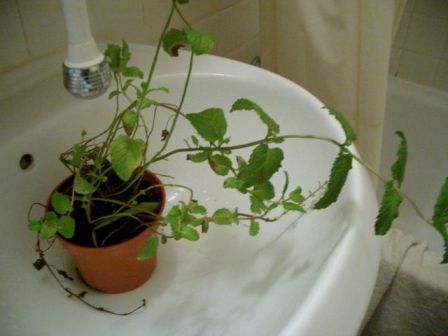
It turned out our laundry room was suitable, as the bigger pot could fit directly over the sink:

We first placed some paper towels and poured soil in:
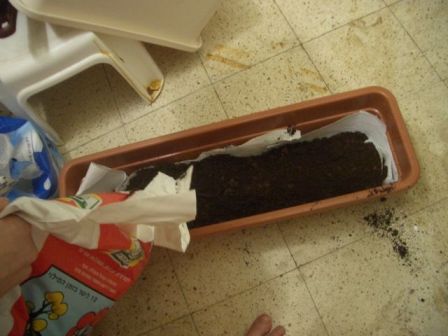
Then we carefully lifted Minty out of its old home and into the new one:
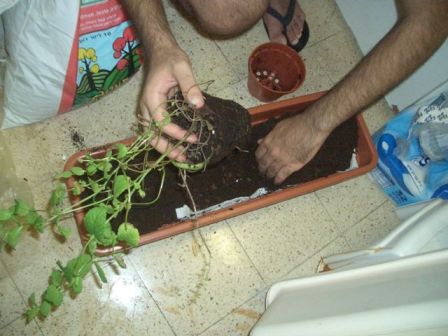
A closer photo of some of Minty’s luscious green leaves:
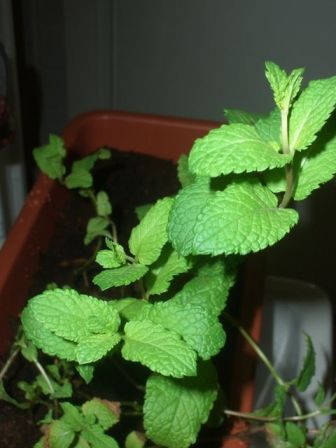
An added bonus of having it over the sink, is that watering the plant is so easy:

However, a few days later I searched for information about the appropriate conditions for a mint plant and came to the conclusion that it would be better to water it using filtered water, as the water here is hard. I also read about cutting the stems and cultivating them separately to form new plants. We decided to do this, as it would help speed up our plant covering the new pot. Here are the sprigs we cut off and placed in glasses:
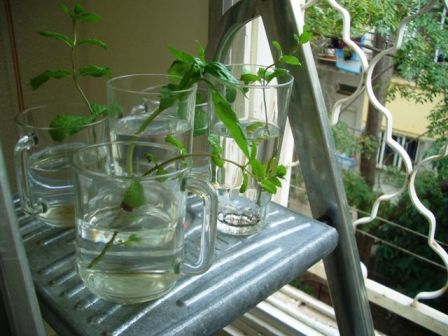
As I write this, a few more days have passed and we are already seeing roots sprouting out. We’ll wait a few more days before planting them into the pot.
And here’s a closer photo of a shoot that’s just poking out of the soil:
